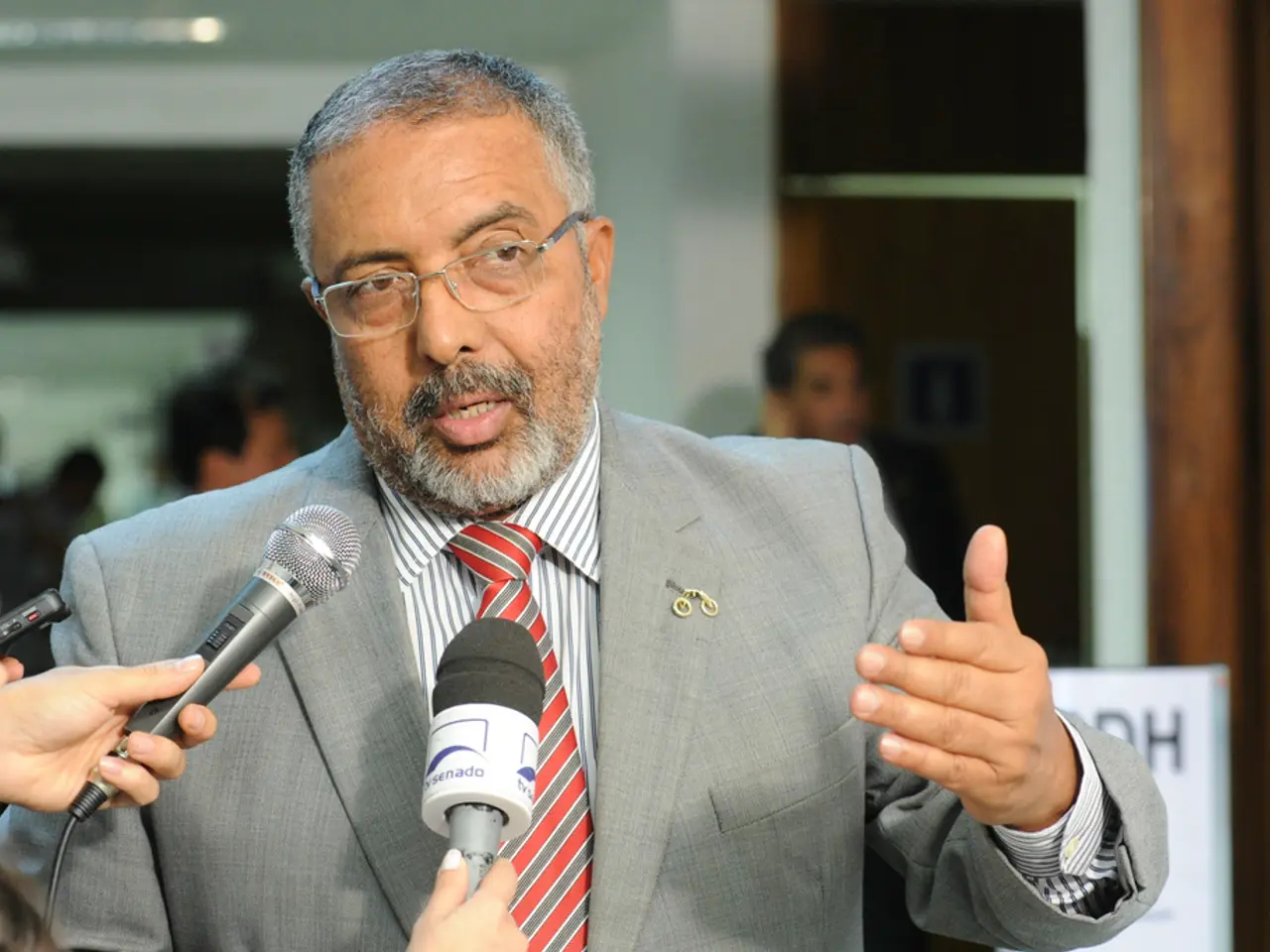AI Voices Challenge the Traditional Dubbing Sphere in Europe
In the rapidly evolving world of entertainment, European voice actors are standing up for their rights and advocating for stricter regulations against the use of AI in dubbing.
Voice actors, including prominent figures in France and Italy, have formed initiatives like "TouchePasMaVF" to protect their rights and ensure that AI voice use respects actors' rights, forbidding unauthorized cloning and demanding clear attribution, permission, and compensation. They argue that a voice is part of an actor's identity and intellectual property, and AI cannot replicate the emotional and experiential depth humans bring to dubbing.
The Voice Directors Society (VDS), part of the United Voice Artists network, is among those pushing for change. Cédric Cavatore, a member of the VDS, has expressed concerns about the lack of protection for intellectual property in AI-driven dubbing.
Netflix, a leading streaming platform, has already tested AI-based lip-sync technology for dubbed dialogue. As the dubbing market continues to grow, from $4.3 billion in 2025 to a projected $7.6 billion by 2033, there is a significant potential for AI-driven dubbing solutions to be adopted by platforms seeking to reduce costs and compete for subscribers and advertisers.
Shows like "Squid Game" and "Lupin" have relied heavily on dubbing to reach international audiences. However, the removal of the AI-dubbed German version of the Polish crime series "Murderesses" by Viaplay was due to viewer criticism of its flat, monotonous dialogue.
Eberhard Weckerle, CEO of dubbing studio Neue Tonfilm Muenchen, hopes for a coexistence of human and AI dubbing. Yet, concerns about technology replacing human labor in the film industry are not new, as AI was a central issue during the 2023 Hollywood labor disputes, which led to new guidelines on its use.
Notable voice actors, such as Boris Rehlinger, known for dubbing Ben Affleck, Joaquin Phoenix, and Puss in Boots, are at the forefront of this fight. Rehlinger is currently fighting to preserve his craft in the age of Artificial Intelligence.
A group of 12 well-known German voice actors went viral on TikTok with a campaign against AI dubbing. Consumer research firm GWI reports that 43% of viewers in Germany, France, Italy, and the UK prefer dubbed content over subtitles, highlighting the importance of maintaining the quality and authenticity of dubbed works.
European voice actor unions are urging the EU to enforce stricter regulations to protect job security, maintain artistic quality, and preserve performers' rights in the production of future dubbed works. The unions' efforts are aimed at ensuring that AI serves creators rather than exploiting them.
References: [1] European Voice Actors Push for AI Regulations (2023). Retrieved from https://www.europeanvoice.eu/article/european-voice-actors-push-for-ai-regulations/ [2] Voice Actors Unite Against AI Dubbing (2023). Retrieved from https://www.theverge.com/2023/3/2/22948647/voice-actors-ai-dubbing-touchepasmavf-union-regulations [3] The Future of Dubbing: AI and Voice Actors (2023). Retrieved from https://www.bbc.co.uk/news/technology-56693765 [4] AI in Dubbing: Risks and Regulations (2023). Retrieved from https://www.wired.co.uk/article/ai-dubbing-risks-regulations
- European voice actors, including Boris Rehlinger, have formed initiatives like "TouchePasMaVF" to protect their rights and advocate for stricter regulations against the use of AI in dubbing.
- In the rapidly evolving world of entertainment, prominent figures in France and Italy are urging the EU to enforce stricter regulations against AI in dubbing to protect job security, maintain artistic quality, and preserve performers' rights.
- As AI-driven dubbing solutions become more prevalent in the film industry, Cédric Cavatore of the Voice Directors Society (VDS) has expressed concerns about the lack of protection for intellectual property in AI-driven dubbing.
- Notably, a group of 12 well-known German voice actors went viral on TikTok with a campaign against AI dubbing, citing concerns about technology replacing human labor and the importance of maintaining the quality and authenticity of dubbed works.




